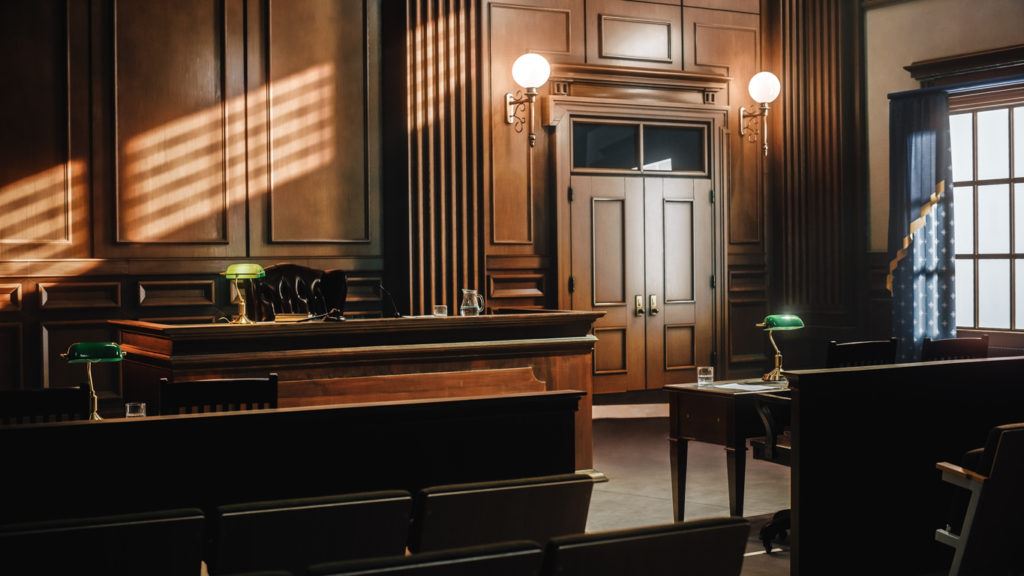Can You Drop Charges Against Someone Before Court?

Yes, charges can be dropped before or after court. Typically, reasons for dropping charges before court is due to elements like settlement or new information that may affect your court case.
Let’s take a closer look at some of the reasons why a court case would be dropped and what it means for you.
Why Would A Court Case Be Dropped?
There are several reasons why charges against someone may be dropped before a court appearance. These include items like lack of evidence, witness problems, and plea bargains.
- Lack of Evidence:
If there is insufficient evidence to prove the accused person’s guilt beyond a reasonable doubt, the case may be dropped. This can occur if the prosecution does not have enough physical evidence, witness testimony, or other corroborating evidence to support the charges. In such cases, the prosecutor may decide to drop the charges rather than risk losing the case at trial.
- Witness Problems:
Issues with the prosecution’s witnesses can make it difficult to see a court case through. This may include witnesses who are unwilling or unable to testify or whose testimony is deemed unreliable or contradictory. Without strong witness testimony, the prosecutor may not have a strong case and may choose to drop the charges.
- Plea Bargains:
In some cases, charges may be dropped as part of a plea bargain agreement between the prosecution and the defense. In a plea bargain, the accused person agrees to plead guilty to a lesser charge or to a reduced number of charges in exchange for the prosecution dropping the remaining charges. Plea bargains can be a useful tool for both the prosecution and the defense, as they can help to avoid the time, expense, and uncertainty of a trial.
- Other Reasons:
There may be other reasons why charges may be dropped before a court appearance. For example, the accused person may be able to show that the charges are the result of a mistake or misunderstanding or that the charges are being brought in bad faith. In such cases, the prosecutor may decide to drop the charges.
How Do I Drop Charges In Maryland?
In the state of Maryland, the State’s Attorney’s Office has the authority to drop charges for both civil and criminal domestic violence cases. However, the accuser does not have the power to drop the charges themselves.
If the accuser wishes to have a civil stay-away order removed, they must request this in court, and it is up to the judge to grant or deny the withdrawal. If the accuser is married, they may be able to invoke spousal privilege to temporarily prevent themselves from being compelled to testify against their spouse.
This privilege can only be invoked once, and if there is a subsequent offense, the person will no longer be able to use it. If the person refuses to cooperate with the case or fails to appear in court, they may be found in contempt of court or even arrested by the sheriff.
Conclusion
It’s important to note that the decision to drop charges is ultimately up to the prosecutor and not the accused person or their defense attorney. The prosecutor will consider a variety of factors when deciding whether or not to pursue charges, including the strength of the evidence, the credibility of the witnesses, and the potential consequences of a conviction.
If charges are dropped, the accused person is no longer required to go to court and will not face the possibility of being found guilty. However, depending on the circumstances, the prosecutor may decide to file new charges at a later date if additional evidence becomes available.
There may also be circumstances in which the person who initially brought the charges decides to drop them. This could occur if the person who brought the charges feels that the situation has been resolved or that pursuing the charges is no longer necessary. For example, if the accused person and the person who brought the charges were involved in a minor altercation, and they have since made amends or come to an understanding, the person who brought the charges may decide to drop them.
Alternatively, the person who brought the charges may decide to drop them for personal or emotional reasons. This could be because the person does not want to go through the stress and emotional toll of a court case, or because they have forgiven the accused person and do not wish to pursue legal action.
In summary, there are several reasons why charges against someone may be dropped before a court appearance, including lack of evidence, witness problems, and plea bargains. The decision to drop charges is ultimately up to the prosecutor, and the accused person is no longer required to go to court if the charges are dropped.
The post Can You Drop Charges Against Someone Before Court? appeared first on Albers and Associates.